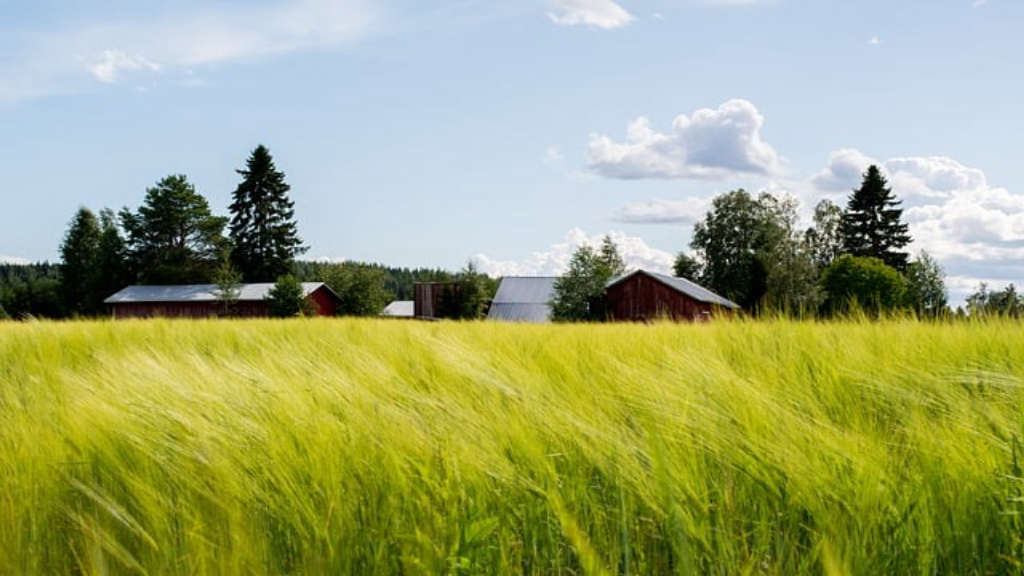In the ever-evolving world of modern agriculture, understanding the various types of farm machinery becomes essential for ensuring efficiency and productivity. Farmers rely on an array of tools that not only simplify their daily tasks but also enhance their ability to meet growing food demands. From planting to harvesting, each type of equipment plays a specific role in the agricultural process.
Main Points
- The importance of types of farm machinery in modern agriculture.
- Key categories of farm machinery and their functions.
- Factors to consider when selecting the right machinery.
- Future trends in farm machinery technology.

Understanding Key Farm Equipment: Categories and Their Importance in Today’s Agriculture
Agriculture, the backbone of many economies, relies heavily on various farm equipment to enhance efficiency and productivity. Understanding these key pieces of machinery is crucial for both seasoned farmers and novices venturing into the field. This article delves into the main categories of essential farm equipment and emphasizes their significance in modern agriculture.
Categories of Farm Equipment
Farm equipment can be broadly classified into several categories, each serving distinct functions that contribute to the overall productivity of agricultural operations. These categories include:
- Tractors: These powerful machines are quintessential in farming. They are used for pulling implements, tilling soil, and hauling loads. Their versatility allows farmers to adapt to various tasks, making them indispensable on the farm.
- Tillage Equipment: This category encompasses tools like plows, harrows, and cultivators. They prepare the soil for planting by aerating it and turning it over to manage weeds and enhance its structure.
- Seeding and Planting Equipment: Seed drills and planters fall into this category, enabling precise seed placement. They ensure optimal planting depth and spacing, which are vital for good crop yields.
- Irrigation Systems: Water management is essential in agriculture. Irrigation equipment can range from simple hoses to advanced sprinkler systems, ensuring crops receive adequate moisture, especially in arid regions.
- Harvesting Equipment: As the growing season culminates, harvesting equipment like combines and threshers become critical. They efficiently bring in the crops, minimizing losses and saving time during the crucial harvest period.
- Livestock Equipment: For farms that also raise animals, equipment like feeders, waterers, and milking machines play a crucial role in ensuring the health and productivity of livestock.
The Importance of Farm Equipment in Modern Agriculture
In today’s fast-paced agricultural landscape, the role of farm equipment cannot be overstated. Here are a few points highlighting their significance:
- Increased Efficiency: Modern equipment designs have greatly enhanced operational efficiency. Tasks that once took days can now be completed in hours, allowing farmers to focus on other critical aspects of their business.
- Improved Yield: With the right equipment, farmers can ensure better planting practices and timely harvesting, which contribute to higher yields per acre. This makes precision farming a reality.
- Sustainability: Advanced agricultural machinery often incorporates features that promote sustainable practices. For instance, precision irrigation systems minimize water waste, contributing to environmental conservation.
In conclusion, understanding key farm equipment and their categories is essential for optimizing agricultural practices. As technology continues to advance, embracing modern tools and techniques not only fosters productivity but also ensures a viable future for farming. By investing time in understanding these crucial components, farmers can adapt more effectively to the ever-evolving demands of agriculture.

Innovative Technology in Farming: How Modern Machinery is Transforming Agricultural Practices
The landscape of agriculture is undergoing a profound transformation, thanks to the advent of innovative technology. In recent years, modern machinery has revolutionized how farmers approach their work, enhancing efficiency and sustainability. This evolution serves as a critical response to the challenges of food production and environmental sustainability. As we delve further into this topic, we uncover how such advancements are not merely trends, but necessary adaptations in the farming sector.
The Rise of Precision Agriculture
At the forefront of this transformation is precision agriculture. This method involves using data and advanced technologies to optimize field-level management regarding crop farming. Technologies such as GPS, sensors, and drones enable farmers to monitor their fields with remarkable accuracy. As a result, they can assess soil health, crop conditions, and the right times for planting and harvesting. However, while the data is insightful, it can also be overwhelming for those not accustomed to such analytics.
Automation and Robotics
Another exciting development is the growing use of automation and robotics in agriculture. Tractors equipped with autonomous technology can perform tasks without human intervention. Additionally, robotic harvesters can work around the clock, picking fruits and vegetables at a speed and accuracy unmatched by human labor. Nevertheless, despite these benefits, some farmers express concerns about the potential loss of jobs. Questions about the economic feasibility of such technologies linger, particularly for small-scale farmers.
Environmental Impacts
Interestingly, the integration of modern machinery also has significant environmental implications. Advanced machines are designed to reduce labor and increase yield while minimizing waste. Moreover, innovations like precision irrigation help conserve water resources, addressing critical concerns about water scarcity. The challenge, however, lies in the potential over-reliance on technology, which can lead some farmers to overlook traditional practices that have sustained agriculture for centuries.
Challenges Ahead
As we celebrate these advancements, it is crucial to consider the hurdles that remain. The cost of acquiring and maintaining this cutting-edge machinery can be prohibitive. Farmers must balance the benefits of new technologies with their financial realities. Furthermore, the need for skilled operators to handle advanced agricultural machinery is becoming increasingly apparent. Training initiatives must evolve to ensure that the workforce can adapt to the changing landscape.
| Technology | Impact | Challenges |
|---|---|---|
| Precision Agriculture | Enhanced crop management | Data overload |
| Automation | Increased efficiency | Job displacement concerns |
| Sustainable Practices | Environmental preservation | Cost of technology |
In conclusion, the integration of innovative technology in farming is undeniably reshaping the industry’s future. By embracing modern machinery, farmers can respond more effectively to the dual pressures of productivity and sustainability. However, as we navigate this exciting journey, it is imperative that we also recognize the complexities and challenges that come with such rapid advancements. The road ahead will require a delicate balance between embracing new technologies and preserving the essence of traditional farming practices.

Conclusion
In conclusion, understanding the various types of farm machinery is essential for anyone involved in agriculture. These machines not only streamline the farming process but also enhance productivity. Efficient use of equipment can lead to better crop yields and reduced labor costs. However, it’s important to choose the right machinery for specific tasks to maximize efficiency. Each type serves a distinct purpose, and embracing that diversity can lead to sustainable farming practices. Ultimately, as agriculture continues to evolve, staying informed about advancements in machinery will be crucial for success in this field.
Frequently Asked Questions
What are the most common types of farm machinery?
The most common types of farm machinery include tractors, plows, cultivators, harvesters, and seeders.
How do I choose the right farm machinery for my needs?
To choose the right farm machinery, consider your specific farming tasks, the size of your farm, your budget, and the type of crops you grow.
What are the benefits of using modern farm machinery?
Modern farm machinery increases efficiency, reduces labor costs, improves productivity, and allows for precision farming, which can lead to better crop yields.